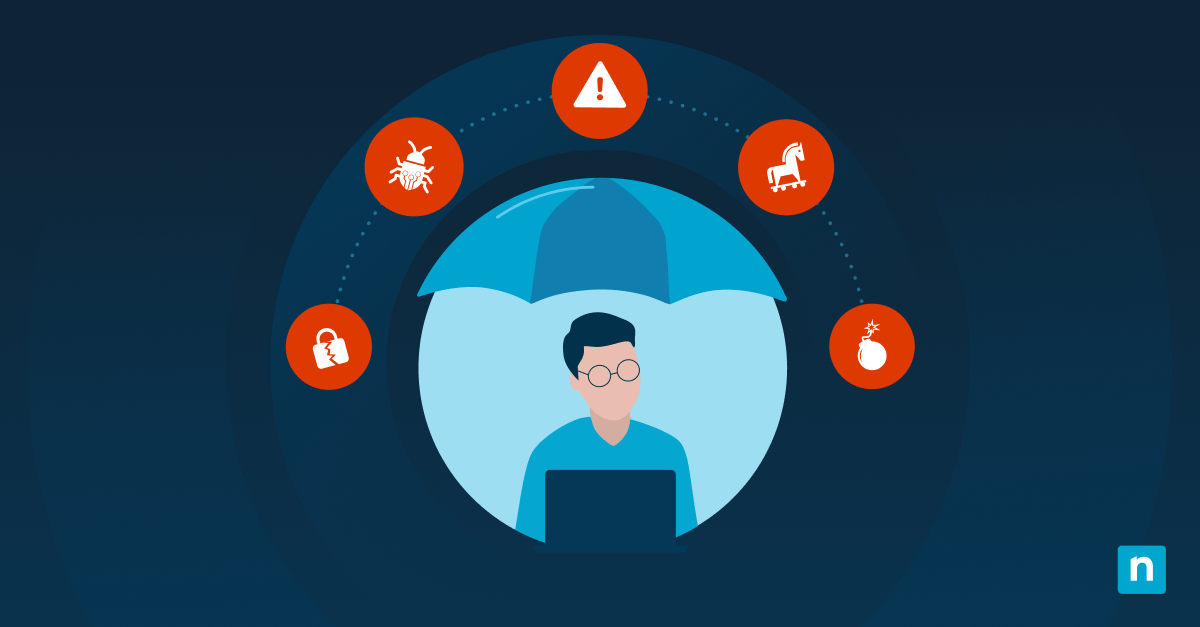Network engineers architect and maintain the digital backbone that powers modern business operations. Their expertise ensures that data moves securely and efficiently across global offices, cloud platforms and remote teams, keeping critical applications available, protecting sensitive information and enabling seamless collaboration in real time.
What is a network engineer and their core responsibilities?
A network engineer designs, configures and troubleshoots computer networks that enable seamless data flow across organizations. Their daily work involves analyzing network performance metrics, responding to connectivity issues within specified (service-level agreements) SLA requirements, and implementing redundant pathways that maintain the highest possible uptimes.
Core responsibilities include:
- Analyzing network performance metrics and proactively addressing issues to meet SLAs.
- Implementing redundant pathways and failover strategies to maximize uptime and reliability.
- Translating business requirements into technical solutions that balance performance, security, and cost.
- Designing network topologies, calculating bandwidth needs, and applying Quality of Service policies to optimize traffic flow.
Infrastructure that network engineers manage
Modern network infrastructure spans physical hardware, virtualized components, and cloud services across hybrid environments. Network engineers are tasked with designing, maintaining and optimizing this infrastructure to support business needs. They implement solutions that provide reliable connectivity, enforce security policies, and enable rapid scaling as organizations grow or adapt to new technologies.
LAN and WAN architecture
LAN and WAN architectures form the foundation of organizational connectivity, linking users, devices, and remote sites. Network engineers design and maintain these systems to ensure reliable, secure, and scalable communication both within offices and across geographically dispersed locations. Their work enables seamless data flow, business continuity, and efficient access to resources regardless of where users are located.
Network security protocols
Security implementation requires multiple defensive layers and continuous threat monitoring. Protocol management encompasses access controls, traffic filtering, and real-time threat detection.
Network engineers configure and maintain:
- Firewall access control lists specify source destination and port combinations.
- VPN concentrators establish IPSec tunnels with AES-256 encryption and SHA-256 authentication.
- Intrusion prevention systems analyze traffic patterns and blocking malicious signatures within milliseconds.
Cloud connectivity solutions
As organizations increasingly rely on cloud platforms, network engineers play a key role in bridging traditional infrastructure with modern cloud environments. They develop strategies that securely connect on-premises networks to cloud services, ensuring consistent performance and unified management across all resources. This expertise allows businesses to scale efficiently, maintain security, and adapt quickly to evolving technology needs.
Performance monitoring systems
Network engineers rely on real-time data and analytics to keep networks running smoothly. They leverage monitoring systems to identify trends, troubleshoot issues and fine-tune performance across all network layers. Key areas they monitor include:
- Bandwidth utilization and traffic patterns to prevent congestion and ensure critical applications have the resources they need.
- Device health indicators such as CPU, memory usage, and interface status to detect hardware or configuration problems.
- Network reliability metrics like latency, packet loss, and error rates to maintain consistent connectivity and user experience.
Key network engineer skills that drive career success
Career advancement in network engineering depends on more than technical knowledge. Key network engineer skills include hands-on configuration experience, vendor certifications validating knowledge, and soft skills enabling collaboration with diverse stakeholders across IT teams and business units.
Technical certifications and expertise
Professional certifications validate technical competency and demonstrate commitment to career advancement. Industry-recognized credentials enhance employer credibility while providing structured learning paths for advanced networking concepts.
Common certifications include:
- Cisco CCNA certification covering routing protocols, switching fundamentals, and network troubleshooting with 120 hours of lab exercises.
- CompTIA Network+ establishing foundational knowledge, including OSI model layers, subnetting calculations, and cable testing procedures.
- Juniper JNCIA certification focusing on Junos CLI commands, routing policies, and enterprise networking protocols.
Problem-solving and troubleshooting
Troubleshooting in networking relies on systematic processes and structured methodologies to quickly identify and resolve connectivity issues. By combining technical analysis with thorough documentation, engineers can resolve problems efficiently and ensure valuable knowledge is retained for future use. Effective troubleshooting not only restores service quickly but also strengthens the network against future issues.
Communication and documentation
Effective network engineers translate technical complexity into clear, actionable language for stakeholders. They document systems rigorously, creating standardized network diagrams, tracking equipment by serial number and warranty, and writing precise SOPs to ensure consistent implementation and compliance. This discipline supports faster troubleshooting, smoother audits, and cross-team alignment.
Project management capabilities
Another critical skill set is project management. Beyond communicating and documenting effectively, network engineers must orchestrate complex deployments, coordinating hardware orders with 6–8 week lead times, managing vendor relationships for circuit installation, and scheduling downtime during low-usage periods.
They develop timelines that include configuration testing, collaborate with facilities teams on cable routing, and define rollback procedures to restore service within 30 minutes if needed.
Career paths and specialization opportunities for network engineers
Network engineering offers a wide range of career directions, from deep technical expertise to strategic leadership. Professionals can branch into areas like wireless networking, cybersecurity, or cloud infrastructure, depending on their interests and industry needs. The foundational skills gained are highly transferable, enabling movement between specialties as technology evolves. Specializing in high-demand fields such as cloud security or automation can lead to higher salaries and open doors to consulting or management opportunities.
Security-focused roles
Network security specialization addresses growing cybersecurity threats requiring specialized defensive measures and incident response capabilities. Security-focused network engineers implement protective technologies and respond to threats using advanced security tools and methodologies.
Common security-focused positions include:
- Security operations center analysts monitor network traffic for suspicious patterns and potential threats using SIEM platforms.
- Firewall administrators design access control policies and maintain security rule sets across Palo Alto and Fortinet devices.
- Penetration testers conduct authorized attacks against network infrastructure to identify vulnerabilities before malicious actors exploit them.
Cloud networking positions
Cloud networking roles center on building and managing secure, scalable connections between on-premises infrastructure and multiple cloud platforms. Professionals in these positions focus on automation, integration, and adapting network designs to support rapidly evolving cloud technologies and business needs.
Network architecture leadership
Senior network architects design enterprise-wide networking strategies spanning multiple years and oversee large-scale infrastructure transformations. They evaluate emerging technologies like SD-WAN for potential adoption, develop technical standards guiding implementation decisions and provide mentorship for network engineering teams.
Consulting and implementation
Independent consulting provides opportunities for experienced network engineers to work with diverse clients on specialized projects requiring deep expertise. Consultants design custom solutions for unique business requirements, lead complex migration projects from legacy systems to modern architectures, and provide expertise for organizations lacking internal networking resources. This career path offers project selection flexibility and often provides higher compensation for professionals with proven track records.
What cloud adoption means for network engineers
Cloud adoption fundamentally transforms network engineering responsibilities as traditional network perimeters dissolve and software-defined networking becomes standard practice. The shift toward cloud services creates opportunities for network engineers developing automation skills using Python scripting, AI, API integration knowledge and infrastructure-as-code expertise.
Organizations need professionals bridging traditional networking knowledge with modern cloud architectures, making continuous learning essential for career relevance in an increasingly cloud-centric technology landscape.
The future of network engineering
As organizations continue to evolve in a digital-first world, the role of the network engineer remains both dynamic and indispensable. Those who embrace new technologies, adapt to shifting business needs, and invest in continuous learning will shape the future of connectivity. For professionals seeking a career that blends technical challenge with real-world impact, network engineering offers a path filled with opportunity and growth.








